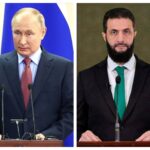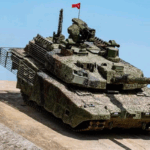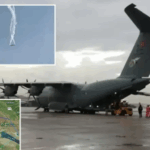Summary & Additional Remarks by Geopolist | Istanbul Center for Geopolitics:
We are witnessing the unraveling of a nuclear world order that, however imperfect, once offered a sense of predictability. What was once framed by the Cold War logic of mutually assured destruction and managed through arms control agreements is now giving way to a far more chaotic and anxious landscape. The institutions that anchored global nuclear stability are weakening, and the assurances that underpinned them—particularly the promise of extended deterrence—are no longer taken at face value by U.S. allies.
This shift is more than just technical or strategic. It is psychological. It speaks to a growing crisis of trust in the international system and, most acutely, in the United States’ role within it. For decades, countries like Germany, Japan, and South Korea relied on the belief—always somewhat aspirational—that the U.S. would risk its own cities to defend theirs. That belief is now fraying under the weight of American unpredictability, especially in the Trump era, where foreign policy seems to swing between isolationist withdrawal and transactional bravado.
As Washington pressures its allies to take more responsibility for their own defense, the natural corollary is emerging: serious reconsideration of national or regional nuclear deterrents. In Europe, France has opened the door to discussions of a continental nuclear umbrella. In East Asia, public support is growing in South Korea for a domestic nuclear option. Even in traditionally anti-nuclear Japan, elite voices are reintroducing nuclear deterrence into national security debates. Meanwhile, states like Iran and Saudi Arabia edge ever closer to nuclear capability—driven by both regional rivalry and the perception that the global nonproliferation regime is fundamentally inequitable.
That regime—the 1968 Nuclear Non-Proliferation Treaty—has long promised a bargain: non-nuclear states would forgo the bomb in exchange for access to peaceful nuclear technology and a commitment by nuclear states to eventually disarm. Yet that last piece of the deal has been consistently neglected. Disarmament remains a rhetorical gesture, not a policy trajectory. Nuclear powers continue to modernize and expand their arsenals, and the one thing they seem able to agree on is a shared hostility to the newer, more normatively grounded Treaty on the Prohibition of Nuclear Weapons (TPNW), which many view as a threat to their strategic prerogatives.
To call this a “Third Nuclear Age” is not just a conceptual label—it’s a recognition that the character of nuclear politics has changed. It is more fragmented, less regulated, and more deeply entangled with technological disruption, regional insecurity, and domestic political volatility. Crucially, it’s also more existentially confusing. The lines between strategic and tactical, deterrence and compellence, offense and defense, are blurring. Nuclear weapons are not just back in the policy conversation—they are creeping back into the political imagination.
And yet, amid this entropy, there are small but important signals of resistance. The TPNW states have not only reaffirmed their commitment to disarmament but have taken concrete steps, including establishing an independent UN scientific panel to study the effects of nuclear war. Their message is both moral and practical: that the security concerns of non-nuclear states matter, and that a world where a handful of countries hold apocalyptic power over the rest is neither sustainable nor just.
The future of nuclear order—if it can still be called that—will depend less on deterrence dogma and more on whether the international community can rebuild trust, restore balance, and reimagine security in shared, not unilateral, terms. For now, the system is holding. But the conversation has shifted. And that shift may prove more consequential than we yet realize.
Read more here.







